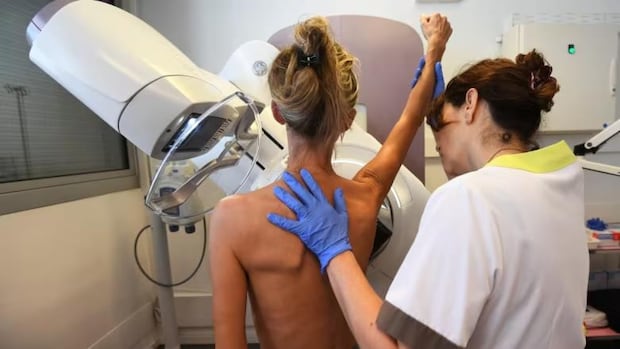Quebec Considers Lowering Breast Cancer Screening Age to 45
Quebec is considering expanding its breast cancer screening program to include women aged 45 to 49, following a report by the province's national institute for excellence in health and social services, INESSS. The recommendation stems from concerns about the increasing rate of breast cancer among younger women.
INESSS Recommendation and Current Screening Program
Currently, Quebec's program offers mammograms every two years to women aged 50 to 74, covered by RAMQ, the province's health insurance plan. Women outside this age range require a referral for a breast X-ray. The INESSS report suggests a gradual expansion to include those aged 45 to 49, but emphasizes the need for significant improvements to the existing system first.
Rising Cancer Rates and Expert Opinions
Dr. Grégoire Bernèche, president of the association of radiologists in Quebec (ARQ), noted that the risk of breast cancer at 45 is now equivalent to the risk faced by 50-year-old women 30 years ago. He says the risk among 40 to 49-year-olds has increased by 20 per cent. While the cause of this rise in early-onset cancer remains unknown, he advocates for earlier screening to address the issue.
Costs and Challenges of Expansion
Expanding the screening program to include women aged 45 to 49 is estimated to cost approximately $177 million over five years, according to INESSS. The institute also warns of existing challenges within the system, including long wait times for mammograms and a shortage of radiologists. Quebec is currently the only Canadian province where routine mammograms are recommended starting at age 50, not 45.
Advocacy for Early Detection
Karine-Iseult Ippersiel, the president and CEO of the Quebec Breast Cancer Foundation, argues that the cost of expanding screening would be offset by preventing the development of more aggressive cancers through earlier detection. She emphasized the benefits of early detection, stating, "The earlier detection of breast cancer, the less costly for the system, the less invasive trajectory for curing that cancer and then the higher survival rate."
Needed Upgrades to the Screening Program
The INESSS report stresses that the existing breast cancer screening program needs to be significantly upgraded before any expansion can occur. Quebec has some of the highest recall rates in the country following false positive results, which are expected to increase if younger women are included in the screening program due to the higher density of their breast tissue.
Wait Times and Staffing Shortages
Wait times for mammograms are a significant concern, with some areas of Quebec experiencing delays of over 20 weeks. In the Lanaudière region, wait times for a first appointment can extend to 30 weeks. Furthermore, the system faces staffing shortages, relying on volunteer professionals to follow up on a portion of mammograms for women without a family doctor. The system currently relies on volunteer professionals to follow up on 11.5 per cent of mammograms for women without a family doctor. Radiologists have struggled to keep up with demand from an expansion last year which included women aged 70 to 74.
Focus on Individual Risk Factors
Ippersiel from the Quebec Breast Cancer Foundation suggests that admissibility to the screening program should be based on individual risk factors rather than strict age brackets. The foundation has funded the development of a risk-assessment tool, combining a saliva test and survey to assess a woman's likelihood of developing breast cancer, which is currently being piloted in Quebec City and the Lanaudière region.
High Recall Rate as an Obstacle
INESSS experts emphasize that the high recall rate—the highest in Canada—is a major obstacle to efficient screening. For the first mammogram, 22 per cent of women were called back, more than three times the target of 7 per cent set by the Institut national de santé publique du Québec. For subsequent mammograms, 8.5 per cent of women were called back, which is also higher than the target of 5 per cent.
IT System Upgrade
Concerns have been raised about the capacity of current computer systems to support an increase in data volume with the addition of new patients undergoing screening. As part of the IT system upgrade, INESSS suggests making it possible to send invitations by email or text message.
Ministry Response
The province's Health Ministry welcomed the INESSS report and stated that it would issue a position shortly, emphasizing the priority of supporting groups of women most likely to develop cancer through prevention.
 Visit the website
Visit the website






